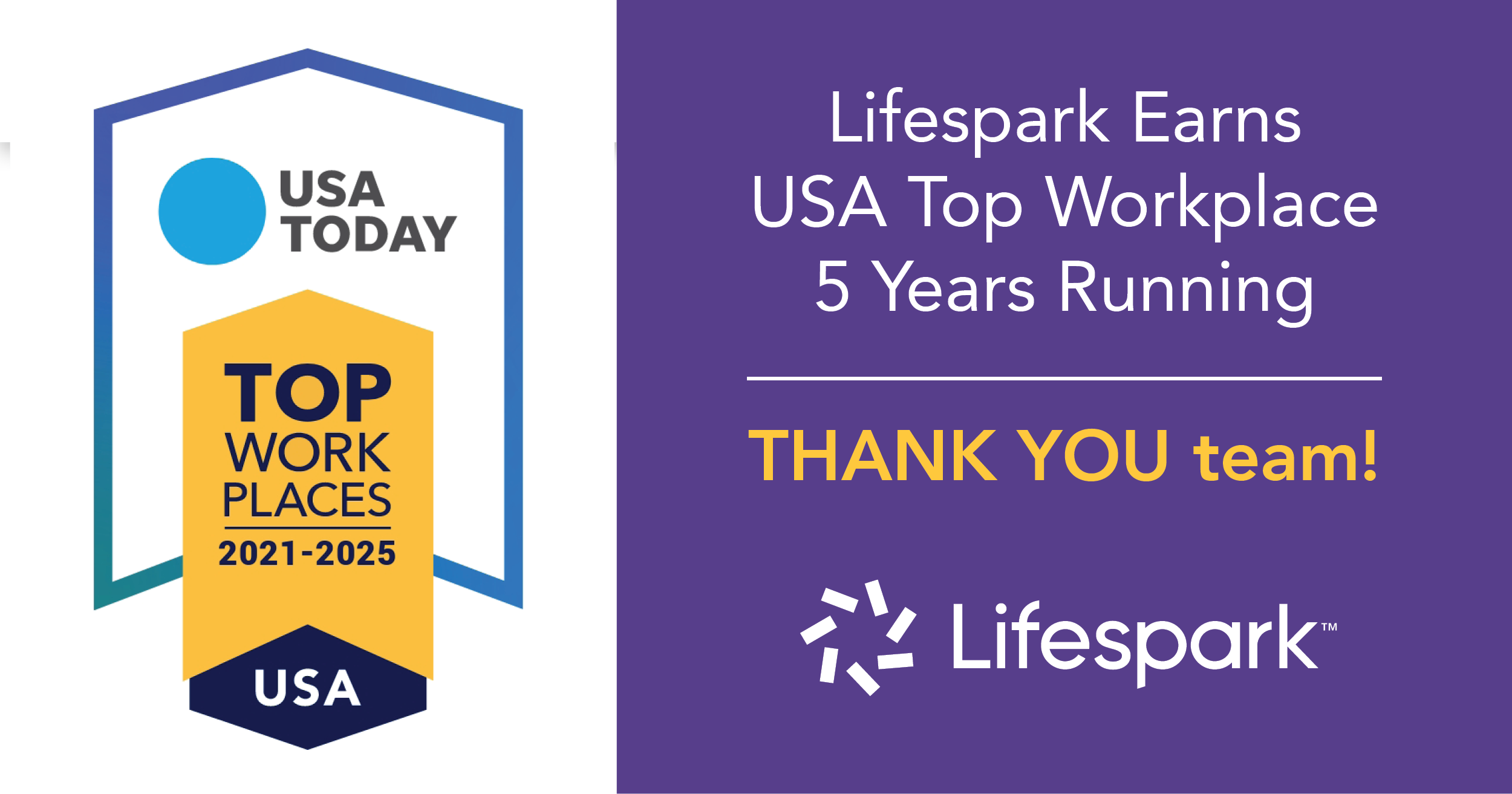
Financial planner Melissa Machlitt, CRPS, CRPC, has never been affiliated with Lifespark—not as an advisor, partner, or consultant—but she’s been a super-fan since 2006. That’s when she first learned about the company’s mission to help people age magnificently. “An executive from Lifespark, which was called AgeWell at the time, met with our team of advisors to tell us about their approach to senior health and their breadth of services,” Melissa said.
According to Melissa, many financial advisors—but particularly women in the field—think holistically about their clients’ needs, going beyond traditional investment advice to recommend best-in-class resources and services that can help address life problems. “It was clear to me that Lifespark had filled a gap that hadn’t been built out before,” she said.
Coincidently, Melissa and her husband had met Ann and Joel Theisen, Lifespark founder and CEO, but knew each other only as hockey parents. “Ann and Joel are both incredible individuals, so when I found out that Lifespark was their company, it cemented my confidence in recommending them to my clients,” she said, adding that for her, it’s always about the people.
Planning ahead for in-home services
Because the majority of Melissa’s older clients have Medicare Supplement plans, they aren’t eligible for Lifespark COMPLETE, Lifespark’s flagship program that gives members access to additional services at no additional cost under select Medicare plans. That’s why she encourages them to consider budgeting for long-term care insurance.
“Long-term care is the single largest risk that can derail seniors in retirement,” she said. “Even though most people know they should be thinking about this, between saving for their kids’ college tuition, playing off credit card debt, and supporting their aging parents, it’s just not a top priority.”
Her advice is to start planning for the future before there’s a crisis. “In the event of a stroke or a fall, if there’s no plan in place, decisions are often based on raw emotion, which can be exponentially more expensive for the family,” she said.
To help clients understand the potential risks and benefits of a reactive vs. proactive approach, financial advisors can run “stress tests” which evaluate adverse but plausible scenarios to project the financial outcomes of different decisions. “For example, we can project what will happen if you have a medical crisis that requires a year of skilled nursing at a cost of $12,000–14,000 per month, as opposed to setting aside $500 each month for eight-plus years to pay for long-term care insurance,” Melissa said. Although long-term care insurance won’t cover all expenses, she said, it can significantly ease the financial burden and anxiety for parents and their adult children.
Foundation for trust
Melissa sees a strong synergy between Lifespark’s proactive approach to health and well-being and taking a proactive approach to budgeting for future care. But that’s just one of the reasons she recommends Lifespark over other senior service providers.
“Most of us don’t know what we don’t know, and we don’t have the resources to figure it out on our own,” she said. “Lifespark has the expertise, breadth of services, and resources to pull it all together. Having one company to complete all your senior health needs, when you need them at the right time like skilled home health, private-pay, senior living or hospice care is a huge convenience.”
Based on all the feedback she’s gotten from clients who’ve connected with Lifespark, Melissa says she trusts that her clients will be taken care of and not taken advantage of. “The people at Lifespark care about seniors and their families,” she said. “That’s the magic.”
To learn more about Lifespark’s approach to complete senior health, call us at 952-345-8770 or visit Lifespark.com.



